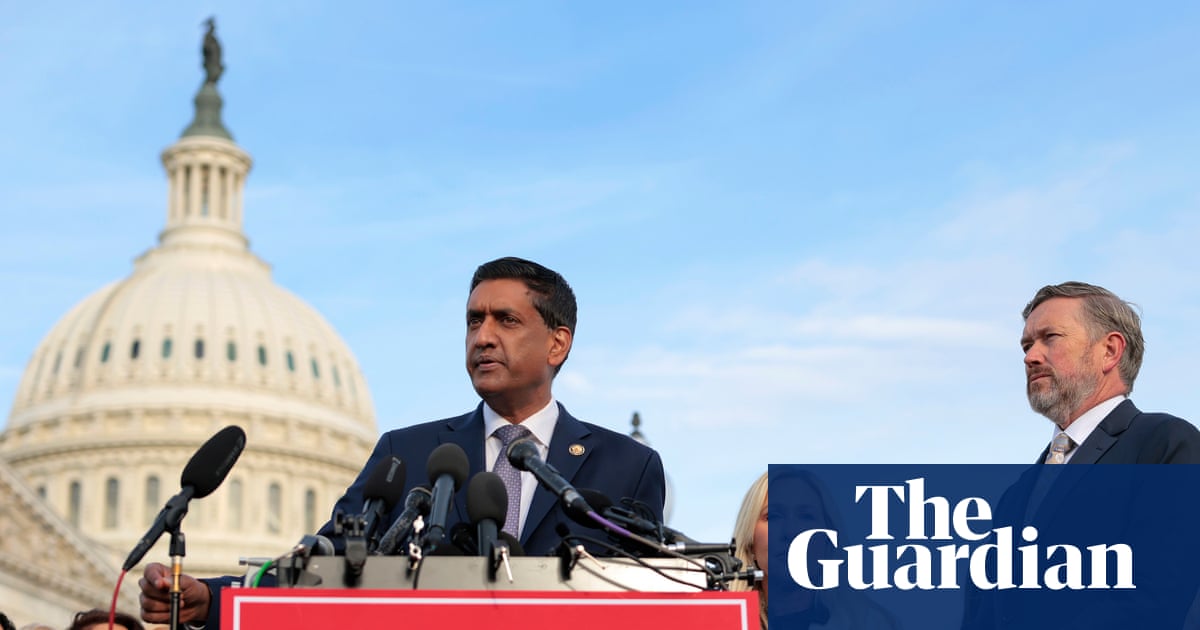Republicans have said for months they had plenty of time to figure out what to do about Obamacare subsidies expiring at year’s end. During a six-week government shutdown that ended last week, they said they’d talk about it after. Now, with five weeks to go before New Year’s, they’re scrambling and divided.
Moderates and lawmakers in competitive seats are anxiously throwing bills together, worried about the political fallout that could await them if the subsidies expire and premiums skyrocket. Other Republicans simply want to have some bill to offer when the Senate votes next month on a likely Democratic plan to extend the subsidies as is. Republicans rejected that when Democrats offered it during the shutdown, but agreed to hold the vote.
Republicans in the Senate are latching onto President Donald Trump’s last-minute idea to send the money directly to consumers. But they’re finding it hard to build consensus with such a tight timeframe, and their frustration is showing. POLITICO’s new poll this week found Democrats retain a solid edge on health care affordability going into the 2026 midterms in which both House and Senate control are at stake.
“I want all the Obamacare subsidies to be gone,” retiring Sen. Thom Tillis (R-N.C.) told reporters Thursday. “But this town is horrible about understanding the cliff nature to some of these decisions. We need to let [the subsidies] ramp down over time.”
Many Republicans, especially in the House, share Tillis’s view. But many others would prefer to kill the increased subsidies for insurance companies Democrats created in a 2021 law, or replace them with direct payments. If Congress does nothing, subsidies will return to their original 2010 Obamacare levels.
Republicans have opposed Obamacare from the start, and some disagree that they will be blamed for major premium spikes. But other GOP lawmakers, especially in the House, are stressing about the political fallout.
POLITICO’s November poll of 2,098 U.S. adults gave Democrats a nine-point edge as the party more trusted to bring down health care costs, with 42 percent favoring Democrats, 33 percent the Republicans and the rest trusting neither or having no opinion. The poll, from London-based Public First, had a margin of error of 2 percentage points.
Democrats, for their part, remain unified behind a straight-up extension of the increased subsidies, which made health insurance plans free for some and also offered subsidies for the first time to people earning more than 400 percent of the poverty level. Democrats shut down the government in October to demand an extension — their party had set the Dec. 31 expiration date in a 2022 law for budgetary reasons — but eight in their caucus relented last week on the condition that the Senate vote on the issue.
“It's critical that we come to the table and find a bipartisan path to extend enhanced tax credits,” said Sen. Maggie Hassan (D-N.H.), one of the eight.
But Wednesday’s Senate Finance Committee hearing on affordable health care suggested limited prospects for a bipartisan deal.
Sen. Chuck Grassley (R-Iowa) likened the debate to that which accompanied the original Affordable Care Act in 2009. No Republicans voted for it. The committee Democrats spent their time defending Obamacare on the merits, and Republicans did little but attack it.
Democrats had hoped that President Donald Trump might step in and urge at least a temporary extension of the subsidies. Instead, he’s continued to blast Obamacare — which he unsuccessfully sought to repeal in his first term.
“THE ONLY HEALTHCARE THAT I WILL SUPPORT” is a direct payment to consumers, he wrote on his social media site Truth Social on Tuesday. He blasted the subsidies as a handout to “BIG, FAT, RICH INSURANCE COMPANIES.”
Republicans in the Senate have taken up Trump’s charge.
Bill Cassidy (R-La.), who’s chair of the health committee and has a seat on Finance, has floated converting funding for the enhanced subsidy into a health savings account Americans can purchase if they opt for a bronze tier Obamacare plan, which can have higher cost-sharing such as a large deductible. An HSA can help cover deductibles, but consumers would still have to pay the premium. The unsubsidized price for the bronze plans varies by state, but runs from a few to several hundred dollars a month for each person in a household.
“Right now, it’s trench warfare,” lamented Cassidy to colleagues on the Finance panel. He pitched his HSA proposal across the aisle, but it wasn’t well received.
Senate Majority Leader John Thune has said he’ll hold the vote on a subsidy extension in the second week of December.
It remains unclear what the terms of the Democratic bill will be, whether a permanent extension or a temporary one, but Republicans want to have their own plan to offer at the same time.
Sen. Rick Scott (R-Fla.) proposed a bill Thursday that lets the subsidies expire and enables states to get a waiver to offer “Trump Freedom Accounts.” The accounts would resemble HSAs, but could be used to pay premiums. States that opt in could redirect Obamacare subsidies at the original 2010 levels into the accounts.
Scott’s proposal would also enable insurers to sell plans across state lines, long a GOP goal. Democrats oppose that, arguing it undermines state autonomy in regulating health insurance.
Some Republican senators told POLITICO that despite the scrambling on their side, they aren’t worried. “Obamacare has failed Americans,” said Wyoming Sen. John Barrasso, the party’s second-ranking leader.
He said that Democrats should agree to a policy that “significantly reforms” the law.
Cassidy said he expected voters would see that Trump and Republicans had coalesced around a plan and that they’d blame Democrats if it’s not enacted.
“The president is there. He wants to do it,” Cassidy said, referring to a health deal. “You tell me who is at fault if something is not in place? Not Republicans. We have a deal and a plan. We are working hard to make sure something happens.”
Vulnerable House Republicans don’t sound so confident.
A quartet of bipartisan representatives introduced legislation Friday to extend the subsidies for two years, but include an income cap and other changes. The bipartisan Problem Solvers Caucus is exploring its own legislation to extend the subsidies and expand flexibility for HSAs. The bill could also include a stalled bipartisan overhaul of rules governing drug middlemen called pharmacy benefit managers. Many lawmakers blame them, in part, for America’s high drug prices.
A group of thirteen vulnerable lawmakers reached out to House leadership during the shutdown about the importance of an extension.
But House GOP leaders are cool to one and have backed their Senate counterparts in preferring a new approach to helping Americans pay for health care.
House Majority Leader Steve Scalise shared a slide deck during the GOP conference meeting Tuesday that highlighted statistics showing premiums have increased by 80 percent since the Affordable Care Act’s 2010 passage.
Conservatives are especially locked in against an extension. Rep. August Pfluger (R-Texas) said Tuesday the party should pursue a budget process that makes it possible for Senate legislation to skirt a Democratic filibuster in order to make changes to Obamacare. He said that would be better than trying to work with Democrats who cannot come up with “a plan that is competitive, transparent and actually reduces costs.”
But any package using that process, known as reconciliation, would be hard to get done before the end of the year. It took months for Republicans to use reconciliation to pass their One Big Beautiful Bill Act in July.
Some House Republicans say they are open to other ideas for Obamacare subsidies, including Cassidy’s approach. But they worry there’s not enough time for that either.
Open enrollment has already started for Obamacare plans and consumers are facing an average increase of 114 percent to their out-of-pocket premiums, according to an analysis from the health policy research group KFF.
Some House Republicans are even taking Democrats’ side. Rep. Jeff Van Drew (R-N.J.) said he preferred Republicans agree to a one-year extension if they can’t come up with something better.
“What we’ve got to do now very rapidly is get beyond several ideas and concepts for a substantive plan,” he said. “You can’t double or more people’s premiums.”
Senate Minority Leader Chuck Schumer proposed a one-year extension two weeks ago.
Rep. Don Bacon (R-Neb.), a moderate who is retiring after this term and backs a bill calling for a two-year extension of the subsidies, predicted Republicans will need 60 votes in the Senate for any legislation and suggested making a deal.
“We’ve got to have a better long-term plan. I don’t really want people’s premiums to go up,” Bacon said.
Jordain Carney contributed to this story.

 German (DE)
German (DE)  English (US)
English (US)  Spanish (ES)
Spanish (ES)  French (FR)
French (FR)  Hindi (IN)
Hindi (IN)  Italian (IT)
Italian (IT)  Russian (RU)
Russian (RU) 























Comments